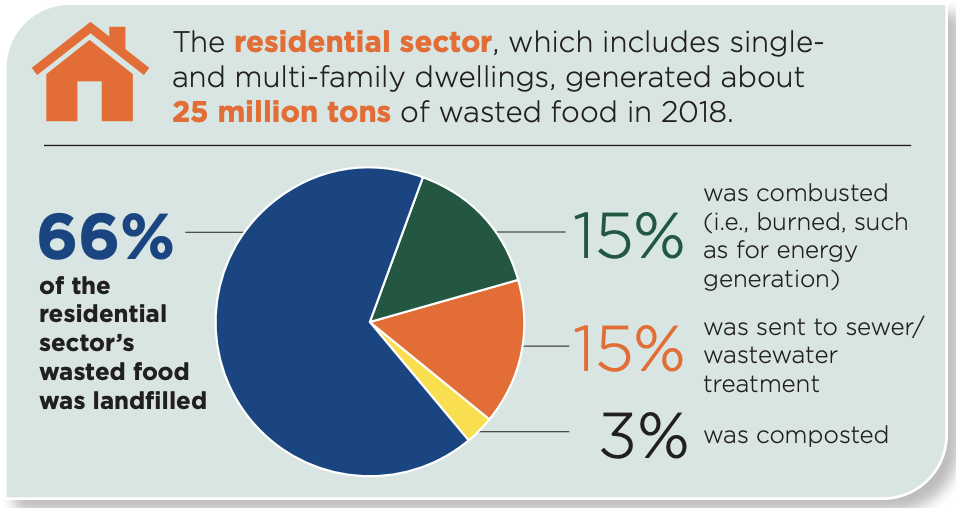When we think about sustainability, it’s easy to let our minds jump to impressive, large-scale solutions like solar panels or massive environmental cleanup projects—and while these are all great things, I want to focus on something a bit smaller and closer to home: your kitchen. Although it may seem like changing how you prepare your meals might be insignificant, when considered on a large scale, people’s individual cooking practices actually have the ability to make a sizeable impact on our society’s sustainability, making this an area we should absolutely be focusing on.
This impact largely comes down to the issue of food waste. The EPA reported in 2018 that the residential sector alone generated about 25 million tons of food waste, of which 66% was sent to landfills, contributing to rising levels of methane and other greenhouse gases. Meanwhile, solutions like composting diverted just 3% of that waste stream, which, while disappointing, nevertheless presents great potential for future improvement.

Reducing food waste can be broadly divided into two categories: 1.) minimizing excess food purchased/cooked, and 2.) dealing sustainably with any remaining waste.
First, to lessen the amount of extra food you might buy, consider making a detailed meal plan each week, including the specific amounts of ingredients you’ll need—this will help you avoid waste from preparing too much food. This is especially important for perishable items like fruits and vegetables, which often spoil if you don’t use them quickly. However, for more shelf-stable foods, such as flour or sugar, plan to buy these in bulk, cutting down on cost and minimizing your use of disposable packaging. You can even reduce the amount of food you need to buy in the first place by growing a small herb/kitchen garden, growing your own green onions, or making your own sourdough starter.
Second, composting and similar strategies offer a great way to reduce the amount of waste, both food and otherwise, that you generate while cooking meals. Some waste is obviously unavoidable, but by composting food scraps, spoiled vegetables, tea bags, paper, and other biodegradables, you can decrease that waste stream significantly: a small compost bin is easy to maintain, and in addition to handling most biodegradable kitchen waste, it also produces nutrient-rich compost that you can use in a small garden like the ones mentioned above. Similarly, by using reusable containers for storage and leftovers, you can reduce your non-compostable waste as well—the more single-use plastics you can replace with multiple-use items (think glass, metal, and ceramic), the fewer items will ultimately end up in landfills.
Sustainable practices extend to even our smallest everyday activities, and because of this, you can make a difference simply by changing a few things about your normal routine. Start composting, grow a garden, or even make your own sourdough starter: plenty of helpful resources are available online, and although the changes you make may be small, you can make your lifestyle significantly more sustainable—all from the comfort of your own kitchen.
https://www.epa.gov/recycle/preventing-wasted-food-home
https://www.epa.gov/sites/default/files/2020-11/documents/2018_wasted_food_report.pdf
https://www.usda.gov/sites/default/files/documents/usda-food-waste-infographic.pdf